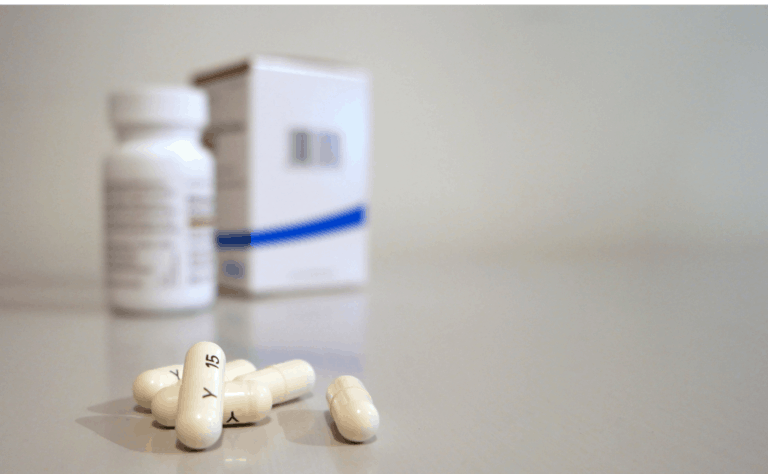The cycle of an alcohol addict is often characterized by a recurrent pattern of alcohol misuse and addiction, which can have a damaging effect on their physical and psychological well-being, social connections, and quality of life. Breaking the cycle of alcoholism is challenging, but it can be done. Continue reading to learn more about the cycle of an alcohol addict, how to overcome it, and treatment options available if you or a loved one is struggling with alcoholism.
The cycle of alcohol addiction is recurrent in nature and involves an uncontrollable urge to drink alcohol which is then followed by negative repercussions.
Alcohol Addiction Explained
Alcoholism is a persistent disorder that creates a compelling need for alcohol, as well as an incapability to restrain one’s drinking. It can lead to a range of serious health, social, and economic issues, and can cause substantial damage to relationships, employment, and financial security. Individuals with alcohol addiction may keep on drinking even though it causes issues in their lives. It may be difficult for them to quit once they have started, and they may experience withdrawal symptoms when they try to reduce or stop their drinking. Treatment for alcohol addiction typically includes therapy, support from family members, and medications to aid in controlling cravings and withdrawal signs.
How Does Alcohol Addiction Develop?
Alcohol addiction, also known as alcoholism, is a condition that can build up gradually for a variety of causes. Some individuals may be genetically predisposed to developing this kind of addiction, while others may form it due to social or environmental influences. Additionally, there are certain risk factors that may raise the probability of an individual becoming addicted to alcohol, such as:
Family History
Having a family history of addiction can significantly increase your risk of developing alcohol addiction. It is important to be aware of this and to have open conversations with your family about the risks associated with addiction. Additionally, if you or someone in your family has a history of addiction, preventative measures such as therapy and support groups can be beneficial in order to identify potential triggers ahead of time.
Co-Occurring Disorders
People who are living with mental health disorders, such as depression and anxiety, often cope with their symptoms by drinking alcohol. This is known as self-medicating and can be a dangerous way to manage these issues. If left untreated, mental health issues can lead to alcoholism, putting individuals at risk for physical and mental health complications, as well as social and economic ones. It is important that those who are struggling with mental health disorders seek professional help before their condition worsens.
Early Exposure
Early exposure to alcohol can have serious consequences. Studies have shown that those who start drinking at a young age are more likely to develop an addiction to alcohol later in life, making it a major public health concern. This emphasizes the importance of education and prevention programs which should focus on helping people understand the potential harm of early exposure to alcohol.
Personality Traits
Certain personality traits, such as impulsivity, may contribute to an individual’s likelihood of developing alcoholism. Risk-taking behavior can also be a factor in the development of alcoholism, as individuals may be drawn to activities that can lead to dependence and addiction. This doesn’t imply that all individuals with these personality traits will become alcoholics; rather, these traits can increase the chances of an individual being more vulnerable to the risks associated with alcohol consumption.
Polysubstance Abuse
People with a history of polysubstance abuse are particularly vulnerable to developing alcoholism. This is because they are already more accustomed to compulsively seeking out and using substances, and therefore more likely to become addicted to alcohol as well. As such, special attention should be given to those who have abused multiple substances in the past, and preventative measures should be taken to ensure that they do not fall into the dangerous cycle of addiction.
The Cycle of an Alcohol Addict
Alcoholism has a recognizable sequence of actions and behaviors that it follows, commonly referred to as the addiction cycle. This pattern is defined by an uncontrollable urge to consume alcohol, which is then followed by a succession of detrimental effects. The cycle of alcoholism can be unique to each individual, and the duration of the cycle can differ greatly.
Some individuals may find themselves caught in the cycle quickly, while others may take longer to go through each stage. It is important to remember that this cycle of addiction can be extremely hard to break out of, and should not be taken lightly. Understanding each stage of alcoholism can help identify when a person is starting to fall into the cycle, and provide them with the resources they need to escape it. This cycle is typically divided into the following four stages:
Stage 1 – Preoccupation and Anticipation
In this stage, the person becomes increasingly preoccupied with thoughts of alcohol and the anticipation of drinking it. They may begin to find ways to justify their desire for alcohol and will actively seek out opportunities to acquire it. This could manifest in behaviors such as attending parties or events where alcohol is available or making excuses to purchase alcohol. In extreme cases, they may even go to great lengths to procure alcohol. Preoccupation and anticipation drive the individual’s behavior during this stage.
Stage 2 – Bingeing
Bingeing is an extremely dangerous stage of alcohol consumption. It involves drinking heavily and/or frequently, often in a very short period of time. People who engage in bingeing may take part in risky or reckless behavior while under the influence of alcohol, putting themselves and others at risk. Bingeing can have serious long-term health and safety implications, so it is important to recognize the signs and intervene if necessary.
Stage 3 – Negative Consequences
The negative consequences of bingeing can be wide-ranging and have serious, long-term effects. People might experience physical issues from drinking, such as hangovers, alcohol poisoning, or liver disease; they could also be left with financial problems stemming from excessive spending, or relationship difficulties due to aggressive or inappropriate behavior. Additionally, these negative consequences can extend to an individual’s mental health, potentially leading to depression, anxiety, or other emotional issues. It is important to remember that the negative consequences of bingeing can have lasting and serious impacts.
Stage 4 – Despair
At this point, the person may feel despair about their drinking and its effects. They might realize that their drinking is a problem and decide to quit, but the physical and psychological dependence that has been built up over time can make it difficult to break the cycle of addiction. As such, it is important for individuals who recognize that they have a problem to seek help from professionals in order to find the best path toward lasting sobriety.
How to Break the Cycle of Addiction
It is not easy to end the cycle of addiction, but it can be done with the right assistance and support. The following can help in overcoming the cycle of alcohol addiction:
Acknowledge the Problem
Acknowledging the problem is the first and most important step in overcoming addiction. This is because only when we recognize that we have an issue, can we start to make progress in tackling it. Taking this step is not easy, however, as it requires us to be honest with ourselves and confront our demons head-on. Acknowledging the problem is a difficult but necessary step to take if we wish to overcome addiction.
Get Professional Help
Seeking professional help is a crucial part of overcoming addiction. A mental health professional, such as a therapist within a rehabilitation program, can help identify the underlying issues that may be contributing to your addiction and provide you with the necessary skills to work through them. This type of treatment plan is tailored to each individual and can help provide support and guidance as you work toward recovery. Seeking professional help is an important step in the journey to overcoming addiction.
Join a Support Group
Joining a support group like Alcoholics Anonymous can be a vital step toward establishing a successful recovery. These support groups provide the opportunity to connect with others who understand the unique challenges that come with addiction and offer a safe and supportive environment to discuss struggles, thoughts, and experiences and receive guidance and encouragement. Furthermore, by participating in a support group, individuals are provided with an invaluable resource in their journey of recovery.
Avoid Triggers
To protect your sobriety, it is important to avoid triggers that may lead to a relapse. This could mean spending time with different people, avoiding certain places or events, and managing your emotions. The most effective way to stay sober is by identifying and avoiding the potential triggers that could lead to drug or alcohol use. If you steer clear of the situations or people that present a temptation for you, you are more likely to remain on the path of recovery.
Stay Connected to Recovery Plan
Building a strong foundation for recovery is essential in order to maintain progress in the long term. It is important to stay connected to your recovery plan and continuously work on it. This includes seeking help and support when needed, as well as regularly assessing your progress and adjusting your goals as necessary. Recovery is an ever-evolving process, so staying connected to your plan will be beneficial in the long run.
Alcohol Addiction Treatment in Asheville, NC
The cycle of an alcohol addict will continue repeating unless professional help is sought. They will remain trapped in a never-ending cycle of substance abuse. This type of addictive behavior can have a devastating physical, mental, and emotional impact. Fortunately, personalized treatment plans can provide the opportunity to break away from addiction.
To get started, a one-on-one consultation with a qualified recovery specialist should be arranged. Asheville Recovery Center provides professional help and can be contacted today to book an appointment. To learn more about the many treatments and services we offer, contact us today.










